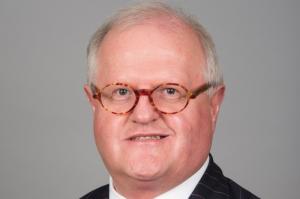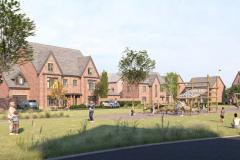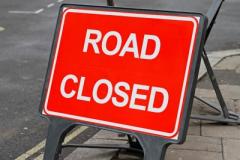
Cheshire East Council has voted through a Council Tax increase to help meet the huge financial challenge it faces particularly in adult social care.
Of the 4.99 per cent increase, three per cent will go directly towards caring for the elderly and vulnerable, where the council funds a £97m adult care budget.
To add to the challenges ahead – and in order to balance its books – the council must also fill the void created by a reduction in government grant support between now and 2020.
The council has set a revenue budget of almost £264m to spend across its broad spectrum of frontline services. Those services will cost taxpayers around £3 per day, while the increase equates to £1.21 per week on the average Band D property.
In 2017/18 the average Cheshire East Council Tax will be in the order of £1,324 per year.
Councillor Peter Groves, cabinet member for finance, said: "For five consecutive years, between 2010 and 2015 we were able to freeze Council Tax followed by a 3.75 per cent increase in 2016/17. But now we are left with little choice but to introduce year-on-year increases until 2020, owing to the enormous financial challenges that we, and all local authorities, now face.
"Despite austere times, our productivity and value for money has continued to increase. Caring for our vulnerable residents is paramount though, and Cheshire East Council wishes to reassure those individuals and their families that their needs will receive priority and our full commitment.
"We spend 54 pence of every pound supporting our vulnerable residents, whether they are young people seeking a start in life or those with particular health needs.
"We will continue to do all in our power to protect frontline services, including caring for the vulnerable – young and old. For adult social care services alone, we will need to find an additional £20m to balance the budget.
"By 2019/20 there will be no general government grant support to the revenue budget of Cheshire East Council. The speed of this change is a major challenge.
"When increases in demand, related to protecting vulnerable people and coupled with inflation, are taken into account then this requires a Council Tax increase in line with government expectations."
The council's turnover is in excess of £700m and its net budget for 2017/18 stands at £263.8m. In addition to the 500 or so services provided to residents each day, Cheshire East has an ambitious capital investment programme of more than £500m over the next three years.
The council says it will continue to invest in infrastructure through a policy for economic growth to open up opportunities for business development and job creation.
Photo: Cllr Peter Groves, cabinet member for finance.








Comments
Here's what readers have had to say so far. Why not add your thoughts below.
I have resorted to putting them in my black bin tbh but still have a backlog.
Published Thursday, December 22, 2016
This briefing note explains the system of referendums on council tax increases in local authorities. It sets out the legislative framework and the thresholds that have been set in previous years.
Jump to full report >>
From the 2012-13 financial year, local authorities, fire authorities, and Police and Crime Commissioners have been required to hold a referendum if they wish to increase council tax by more than a set percentage. This is fixed by the Secretary of State each year: often it is set at 2% for most classes of authority.
Draft thresholds have been published for the 2017-18 financial year. A local authority must hold a referendum if it wishes to increase council tax by these amounts or more:
County and unitary councils: 5%, of which 3% must be spent on adult social care (the 'social care precept');
District councils: 2%, or up to and including £5 on a Band D bill - whichever is the greater;
Police and Crime Commissioners (PCCs): 2% (those with council tax levels in the lowest quartile may raise council tax by up to and including £5 on a Band D bill without a referendum);
Fire and rescue authorities: 2%;
The Greater London Authority: 2%.
As in previous years, no principles are to be applied to parish and town councils.
Referendums must be organised by billing authorities and there is provision for recovery of expenses where the referendum is held on behalf of a precepting authority. Rules for the conduct of referendums have been set out in regulations.
Commons Briefing papers SN05682
Author: Mark Sandford
Topics: Local government, Taxation
Download the full report
Council tax: local referendums ( PDF, 759.13 KB)
Of the 4.99% increase, 3% is restricted for adult & social care spending and so a referendum does not have to take place.
The main reason for the increase is to compensate for a reduction in the Revenue Support Grant (the money CEC receives from central government), which is being phased out and will disappear completely by 2019/20.
Kind regards,
Craig
Ask your MP, it wos him wot dun it.